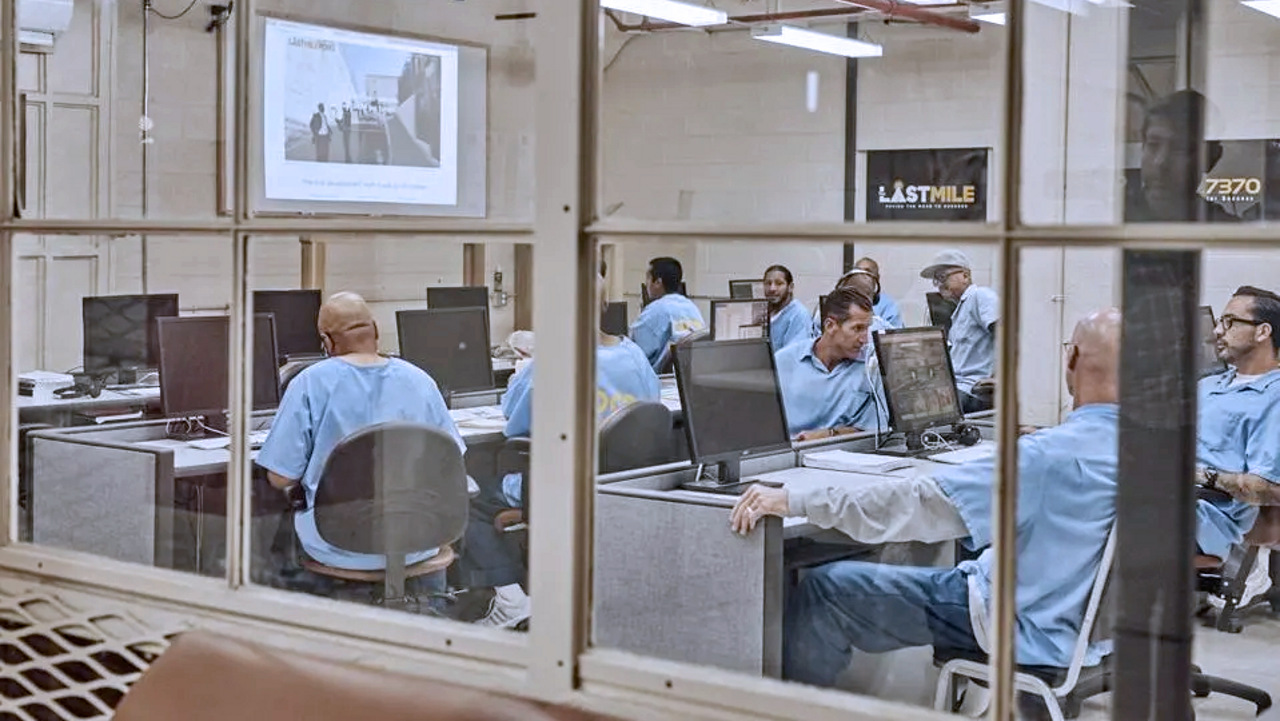Formal computer science may never model practical computer engineering well enough to be predictive in the way the physical sciences are.
Education
They Can Include AI, But Should They?
Educators must help students learn not just to build with AI, but to determine if it belongs.
Students in Advanced Computational Fields Are Accelerated Early Adapters of Generative AI Technology
The adoption rate and use intensity of GenAI tools by advanced computational students are higher than those of other STEM students.
Towards a Better CS Conference Experience
Again and again you see speakers reading a prepared text in a monotonous tone. Come on, you can do better.
Learning Computer Science Behind Bars
Teachers of computer science in prison must think creatively about curriculum delivery and rethink assumptions about how students learn.
Sutton and Barto developed reinforcement learning, a machine learning method that trains neural networks by offering them rewards in the form of numerical values.
Beyond Learning Objectives: Reflections on What We Teach and How We Teach It
Professionals understand the importance of developing interdisciplinary skills in addition to performing well in assessments in the fields they teach.
The Converging Paths of Computer Science and the Humanities in the Age of GenAI
The democratization of both fields through GenAI can create more diverse, inclusive academic communities that will likely bring new perspectives to long-standing questions.
Universities Take Strategic Steps in the Face of Uncertain Funding
The impact of changes in federal funding is a top concern for many university computer science programs.
Multi-Dimensional Growth of GenAI Use by STEM Undergraduates
The evolution of GenAI tool usage by science and engineering students over their academic years provides valuable insights for students, educators, and educational institutions.
The Role of Research in Preparing K-12 Students for Computer Science and AI
K-12 education needs to build on CS successes and prepare students for an AI-powered world.
GenAI as a Teacher Guide and Coding Companion (Part 1)
GenAI could be the perfect coding companion for novice CS teachers in K-12 classrooms.
Generative AI tools are becoming a fundamental part of how students learn and work.
Shaping the Future of Technology
Fit for People, Fit for Purpose: Designing Tech that Matters
My computing degree enabled me to create better-fitting technologies for people and what is important to them.
The Evolution of Computer Science at the University Level
Interdisciplinary approaches that blend computer science with other fields of study have been increasing at universities and in popularity with students.
Assessment in Computer Science Education in the GenAI Era
Exploring the need to rethink assessment in computer science education in the Generative AI era.
‘Superpowers’ of Gender Equality Failing to Establish Gender Balance in IT
The low participation of women in IT suggests a gap between gender-equality policies and a lack of engagement to achieve these policy ideals.
Improving CS Performance by Developing Spatial Skills
Research suggests that attention to the type of games and puzzles we play can improve performance in CS degree programs and beyond.
Integration of Music and Art in a Science and Engineering-Based University
How do technology researchers involved in music and art view its relationship with their science and engineering research?
Heutagogy in Computer Science Education
Heutagogy is characterized by self-determined learning, where learners are not only involved in the learning process but are the primary architects of their educational journey.
Considering Conference Contributions
How to get the most out of the time and effort of serving on Program Committees.
Computational Thinking: The Idea That Lived
Computational thinking is the idea that has not only survived, it is now seen as more important than ever in an age of AI.
Shape the Future of Computing
ACM encourages its members to take a direct hand in shaping the future of the association. There are more ways than ever to get involved.
Get InvolvedCommunications of the ACM (CACM) is now a fully Open Access publication.
By opening CACM to the world, we hope to increase engagement among the broader computer science community and encourage non-members to discover the rich resources ACM has to offer.
Learn More






















